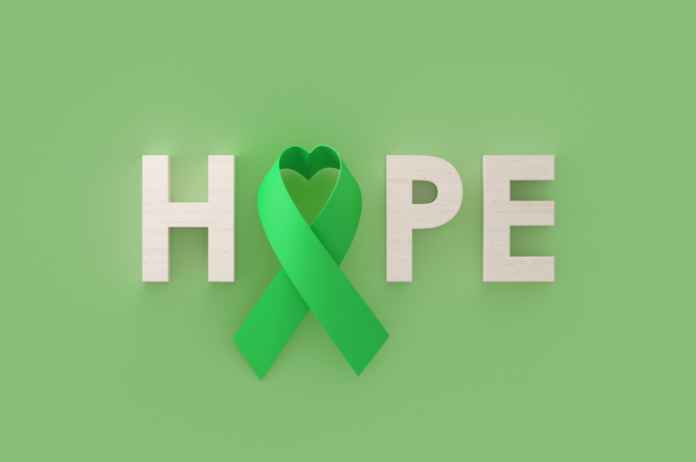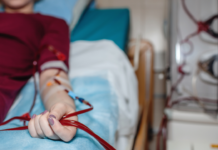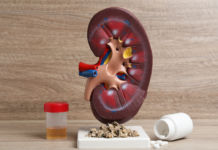Sponsored by: Renadyl™
March is Kidney Disease Awareness Month. Many people and organizations across the world are acknowledging this. So, what exactly is kidney disease, and why is there a whole month dedicated to it? Let’s start with the kidney basics. Your kidneys are vital organs, meaning you cannot survive without them. Most people are born with two kidneys. Your kidneys are bean-shaped organs, each about the size of a fist, that are part of your urinary tract. The kidneys are located near the middle of your back, on either side of your spine, just below your rib cage. Each kidney is connected to your bladder by a thin tube called a ureter. The kidneys affect your entire body.
What Do the Kidneys Do?
Your kidneys filter waste and extra water from your blood to make urine (pee). Every day, your kidneys filter about 30 gallons of blood to remove about two quarts (half a gallon) of extra water and waste products. The waste products in your blood come from the food you eat and the use of your muscles. This waste and excess water make up your line. Next, your urine travels to your bladder through tubes called ureters. The bladder stores the urine until it’s time to urinate
Your kidneys are essential to your health. They do many other jobs that keep your body working the way it should. Some of your kidneys’ other jobs include:
- Controlling chemicals and fluid in your body
- Helping you make red blood cells
- Helping to keep your bones healthy
- Help control blood pressure
When your kidneys don’t work the way they should, they allow waste and water to flow back into your bloodstream instead of sending them out through your urine. This causes waste and water to build up in your body. Your blood pressure, bones, and amounts of red blood cells also depend on your kidney health. The problems caused by poor kidney function make it harder for the rest of your body to work the way it should. Kidney failure is when your kidneys do not work at all.
What Causes Kidney Disease?
Several things can lead to kidney disease. However, the most common causes of kidney disease are diabetes and high blood pressure. Most kidney disease is from damage to the tiny blood vessels in the kidney. When this happens:
- The kidney does not get enough blood flow
- The blood is not cleaned
- Fluids and wastes can build up in the body
Sometimes controlling the underlying health problem can slow the progression from kidney disease to kidney failure. Some patients have more than one health problem that leads to kidney disease. When the kidneys stop working, it is called kidney failure. Kidney disease has five stages.
A kidney doctor will use blood and urine tests to measure your Glomerular Filtration Rate (GFR). The GFR is the best test to measure how well your kidneys clean your blood. The lower the GFR, the less your kidneys are working. Chronic Kidney Disease is measured in stages, and these stages are determined by your GFR.
Treatment of Chronic Kidney Disease:
The kidney doctor will work with you to develop a treatment plan. The plan depends on the stage of your kidney disease. The goal is to slow down or limit kidney damage that may prevent kidney failure. The treatment may include medications to control high blood pressure or high blood sugar. In addition, you may talk to a dietitian, especially before dialysis starts, about limiting how much protein you eat. This will reduce the amount of work your kidneys must do.
After dialysis starts, you will need to eat more protein. As kidney disease gets worse, you will make less urine. However, your body may still make urine with chronic kidney disease. Over time, you will stop producing urine. Your body will need dialysis or a transplant when your kidneys are not removing the fluids and wastes. Not treating kidney disease will cause toxins to build up to dangerous levels. This can lead to death.
Everyone has the option to choose not to treat kidney disease, as chronic kidney disease is a permanent condition. Treatment will not cure the disease. The following treatment options are available for chronic kidney disease (CKD) in its later stages: Hemodialysis, peritoneal dialysis, transplant, and no treatment at all. If you have any questions about kidney disease or treatment options for kidney disease, ask your doctor.
Learn more about our sponsor Renadyl here https://bit.ly/3sZDWbb
About the author
Steven Belcher, RN, MSN, MS, is a dedicated kidney advocate who began his journey 20 years ago as a dialysis nurse. This job inspired him to help as many people with kidney disease as he could. Not only did he spend two decades caring for a patient’s physical and emotional needs in a clinical setting, but he also educated the public on the risk factors of kidney disease. Some of his many philanthropic successes include being a keynote speaker at the National Association of Nephrology Technicians/ Technologists (NANT), presenting at community spaces, and launching radio shows.
He now focuses his time entirely on his organization Urban Kidney Alliance, which educates the public about kidney disease. His goal? To lower rates of Chronic Kidney Disease in urban communities in Baltimore, Maryland, across the country, and globally through education and collaboration.
Steve has also written the book “HOW TO SURVIVE OUTPATIENT HEMODIALYSIS: A GUIDE FOR PATIENTS WITH KIDNEY FAILURE.” You can read the book review here.
*These statements have not been evaluated by the US Food and Drug Administration. This information is not intended to diagnose, treat, cure, or prevent any disease. Always consult with a qualified healthcare professional prior to beginning any diet or exercise program or taking any dietary supplement. The content on our website is for informational and educational purposes only.




